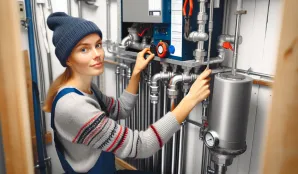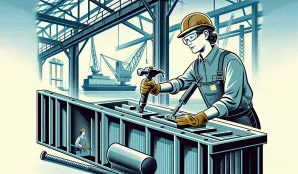News and articles
- Home
- Articles
Latest posts

An organizational manager in an organization is responsible for leading and developing activities within non-profit associations, trade unions, industry organizations, or similar interest groups. The role involves setting strategic goals, ensuring financial stability, and driving change initiatives. Tasks often include budget management, personnel leadership, external representation, and dialogue with the board, members, and external stakeholders. The work environment is usually office-based, characterized by a high pace and many contact points, where demands for flexibility and the ability to handle complex issues are central.
Read more ->
An optometrist technician assists opticians with vision tests and glasses fitting. The role often includes responsibilities for preparatory vision checks, handling optical instruments, and advising customers on glasses and contact lenses. The work environment involves close collaboration with both opticians and customers, often in retail stores or at optometry clinics. The position requires good service skills, precision, and an interest in technology and health.
Read more ->-

Opinion Poll: Demoskop February 2026 – Center increases, S still largest
Fri, 27 Feb 2026 - 09:35 -

Policy rate remains at 1.75% – Riksbank signals stability
Thu, 29 Jan 2026 - 14:02

An optometrist technician assists opticians with vision tests and glasses fitting. The role often includes responsibilities for preparatory vision checks, handling optical instruments, and advising customers on glasses and contact lenses. The work environment involves close collaboration with both opticians and customers, often in retail stores or at optometry clinics. The position requires good service skills, precision, and an interest in technology and health.
Read more ->
An optometry assistant works closely with optometrists and assists with both administrative and practical tasks in retail environments such as optical chains or eye clinics. Common tasks include assisting during eye examinations, helping customers choose glasses and contact lenses, performing simple repairs, and managing bookings and customer service. The role often requires flexibility, as the workday can vary between customer meetings, stock handling, and collaboration with optometrists. The work environment is generally bright, clean, and customer-focused, with a social and service-oriented approach.
Read more ->
An optician assistant works closely with opticians and is responsible for welcoming customers, assisting with eye examinations, and handling simpler administrative tasks in stores that sell glasses and contact lenses. Common tasks include helping customers choose frames, booking appointments, managing orders, and maintaining the store's inventory and stock. Optician assistants usually work in a retail setting with a high focus on customer service and close collaboration with other staff. The work pace can vary depending on the season and demand, but the role requires good service skills and the ability to handle multiple tasks simultaneously.
Read more ->
A district manager in forestry is responsible for leading, planning, and developing operations within a specific geographic area. Tasks include strategic management of forest land, budget responsibility, personnel management, and coordination of various projects related to forest maintenance, harvesting, and environmental work. The role requires close collaboration with landowners, authorities, and contractors. Work is often a combination of office and fieldwork, demanding both administrative skills and practical presence in the forest. Flexibility is an important trait, as workdays can vary depending on season, weather, and project nature.
Read more ->
An oil burner installer works with the installation, servicing, and repair of oil heating systems in buildings, industries, and sometimes on ships. Tasks include troubleshooting, adjusting burners, replacing components, and performing safety checks to ensure systems operate efficiently and meet environmental standards. The installer often works on-site with customers, and environments can range from technical rooms in homes to large industrial facilities. The work requires precision, problem-solving skills, and a high awareness of safety.
Read more ->
An oil-fired heating installer primarily works with the installation, service, and maintenance of oil heating systems in buildings and industries. Tasks include installing and connecting oil burners, checking and adjusting combustion values, replacing worn parts, and troubleshooting operational issues. The work is often performed on-site at customer locations, which means the work environment can vary from technical spaces in residential buildings to larger industrial facilities. The workdays involve both physical activity and precision, with safety and environmental regulations being central aspects. The profession also requires good communication with customers and other professionals at the work site.
Read more ->
A riveter in heavy plate primarily works with joining heavy steel and sheet metal structures through riveting, which is a method of fastening materials using rivets rather than welding or bolting. The work is often carried out at industrial sites, shipyards, or construction sites where large steel structures are assembled, such as bridges, ships, or building frames. The working environment is characterized by high noise levels, heavy lifting, and sometimes working at heights. Personal protective equipment is essential, and safety routines must be followed carefully to minimize the risk of accidents.
Read more ->





